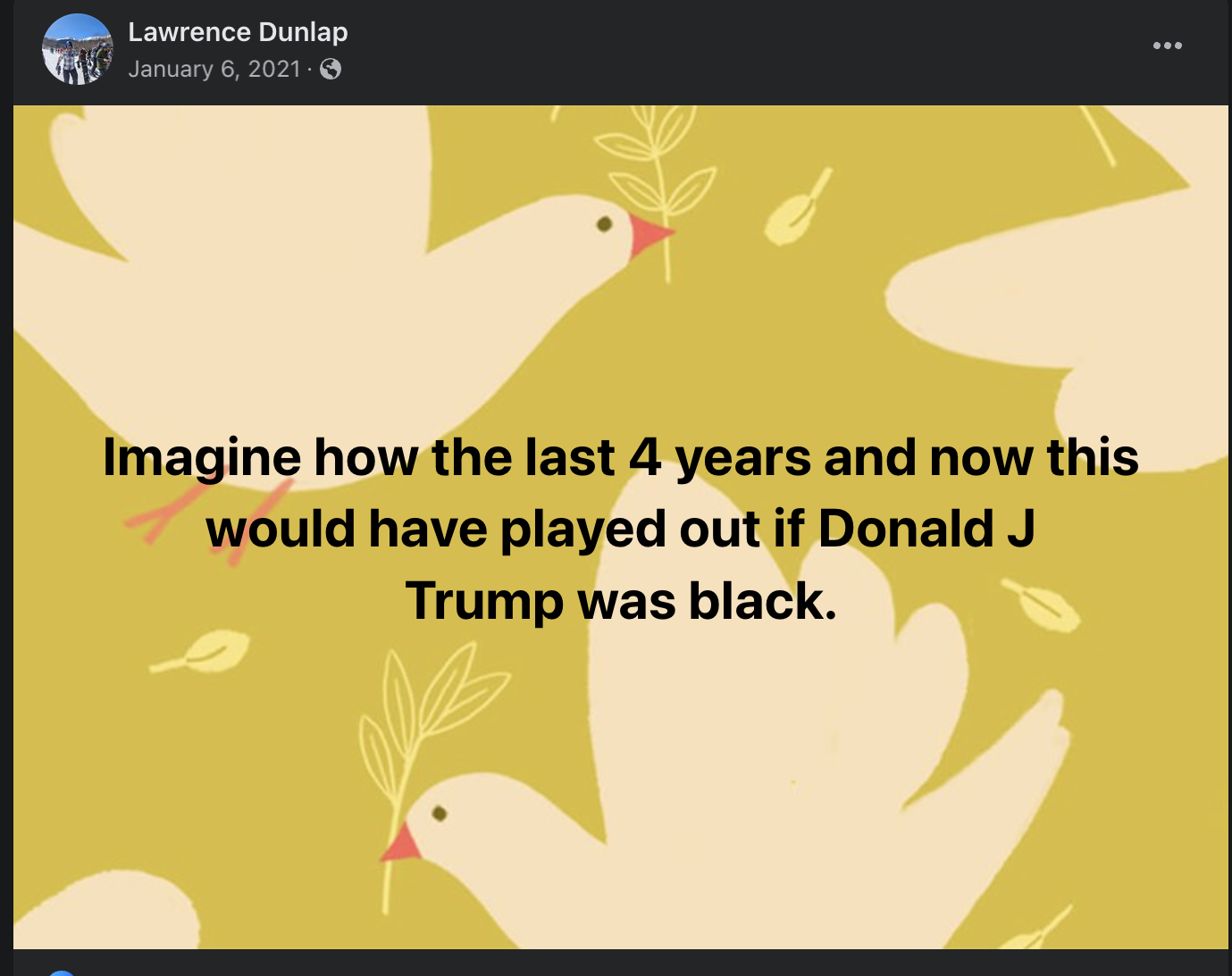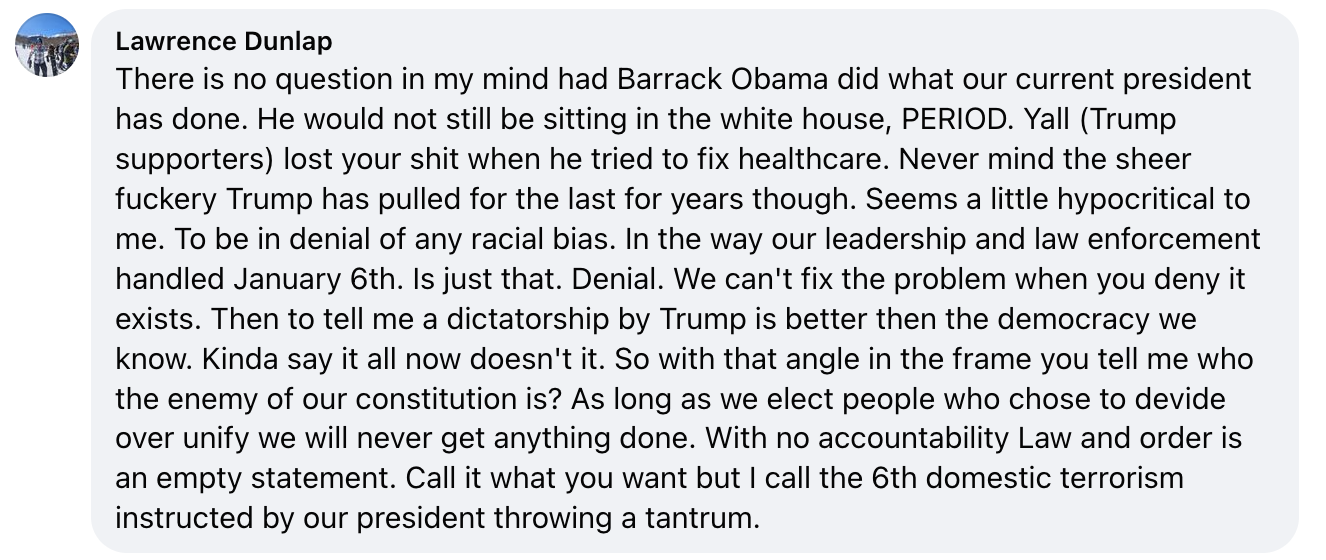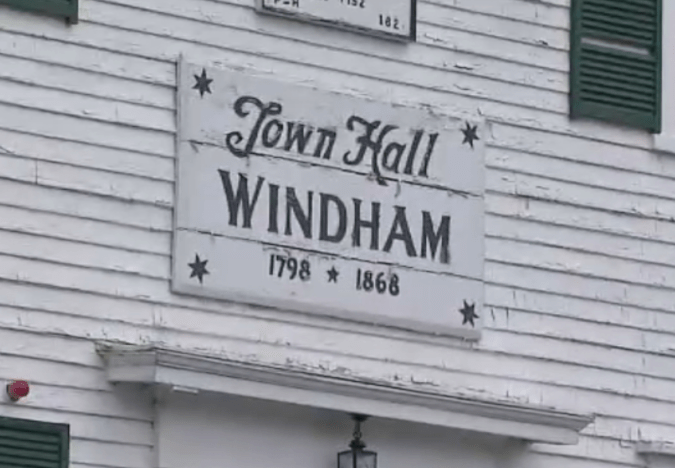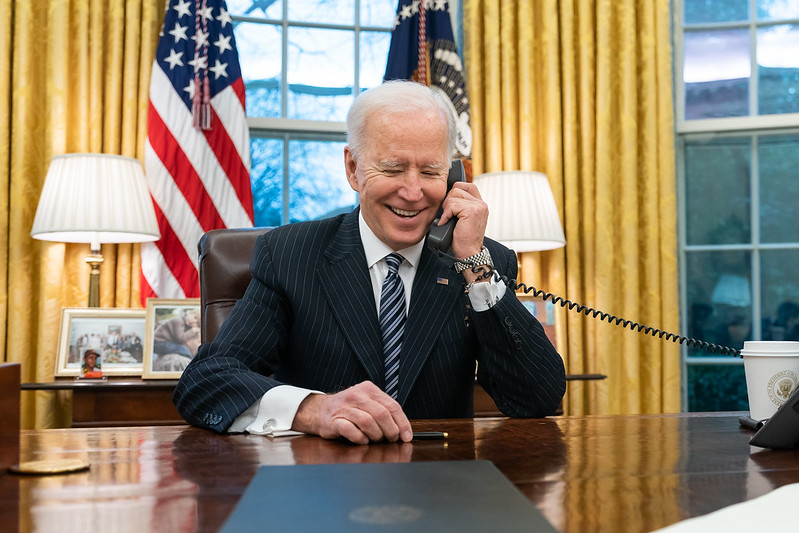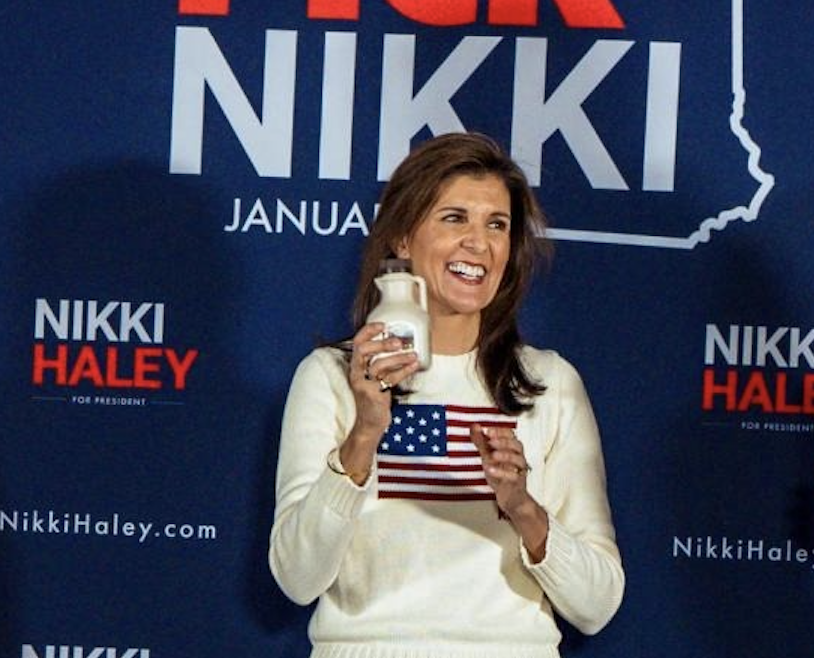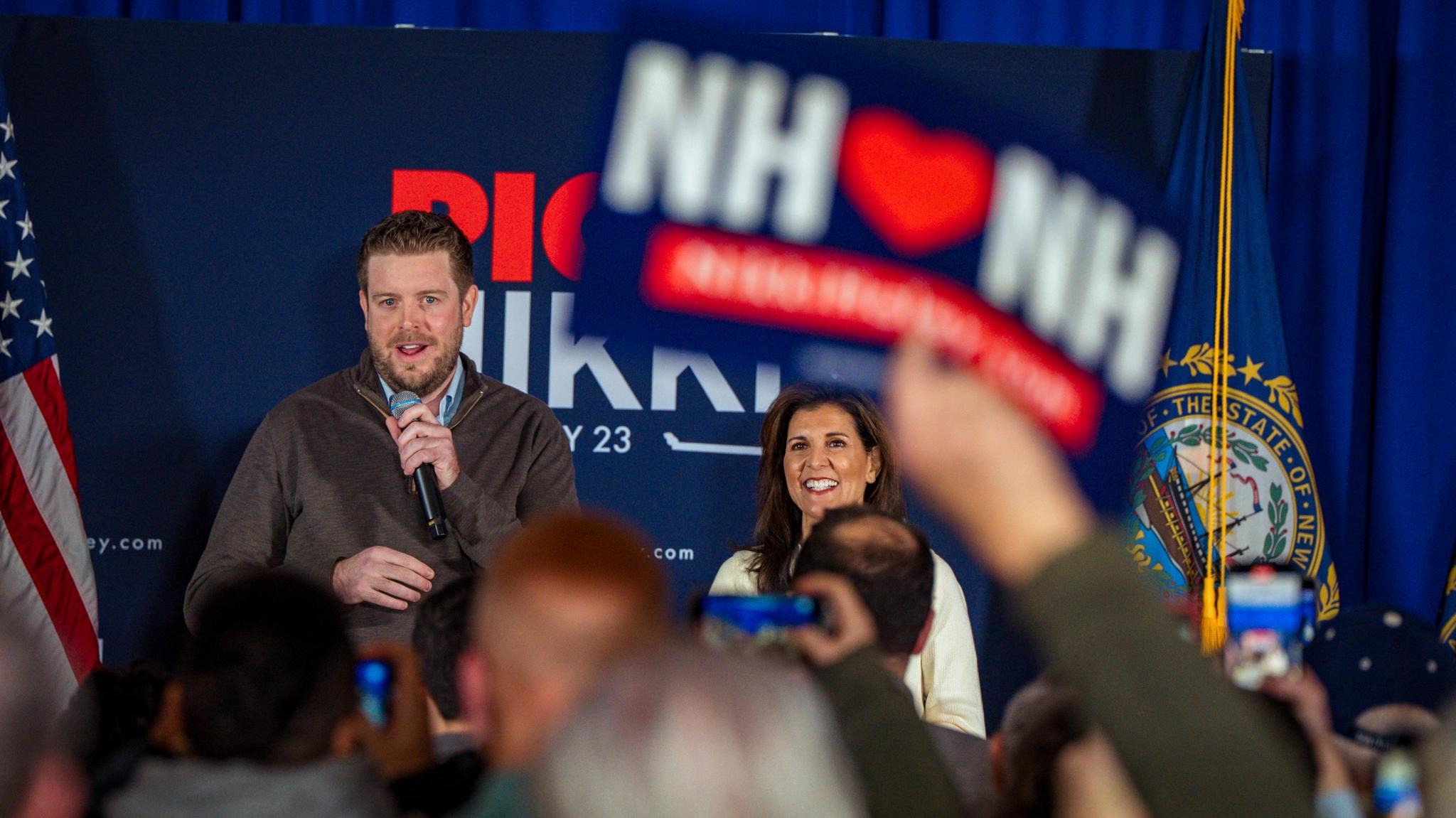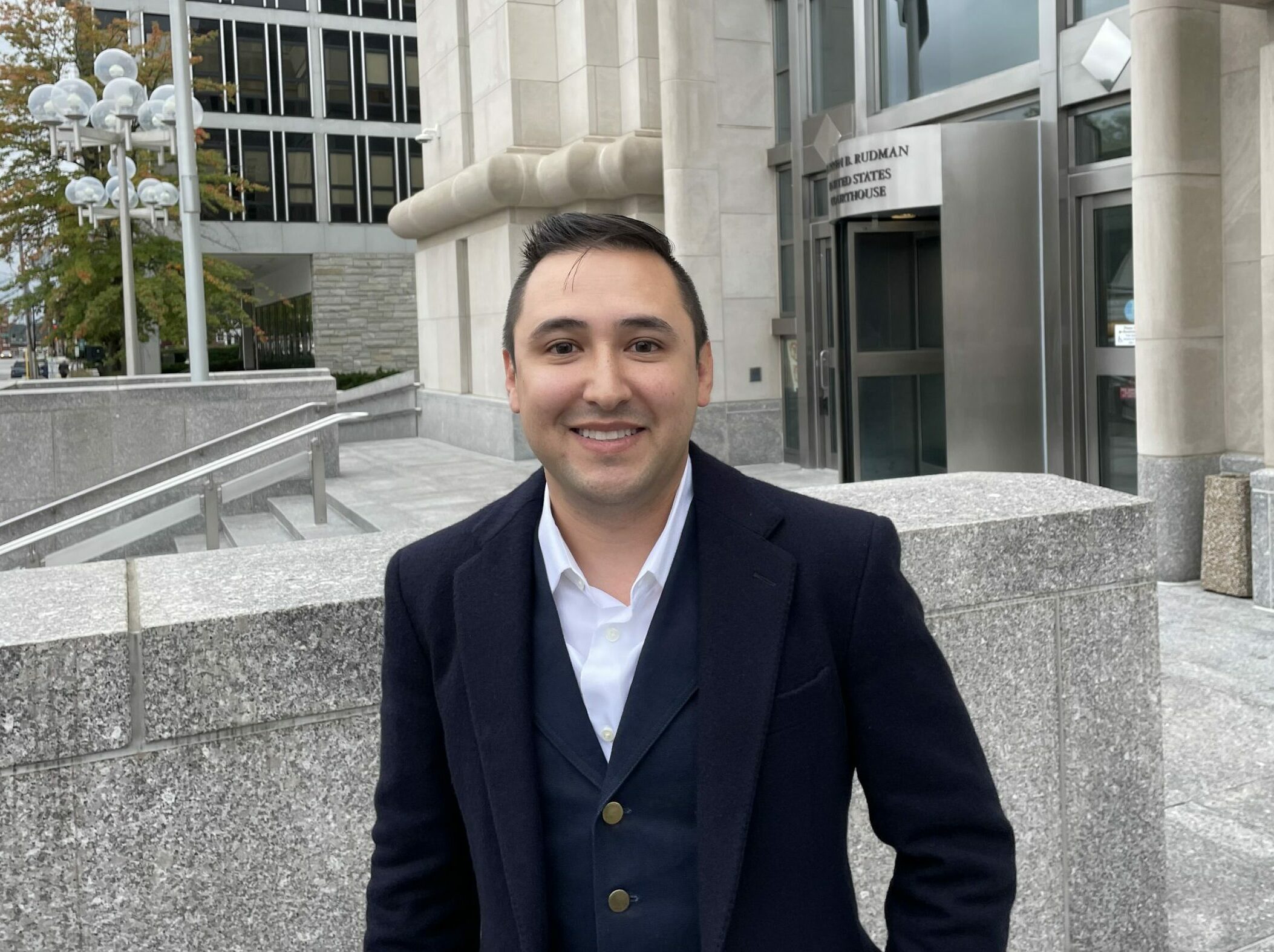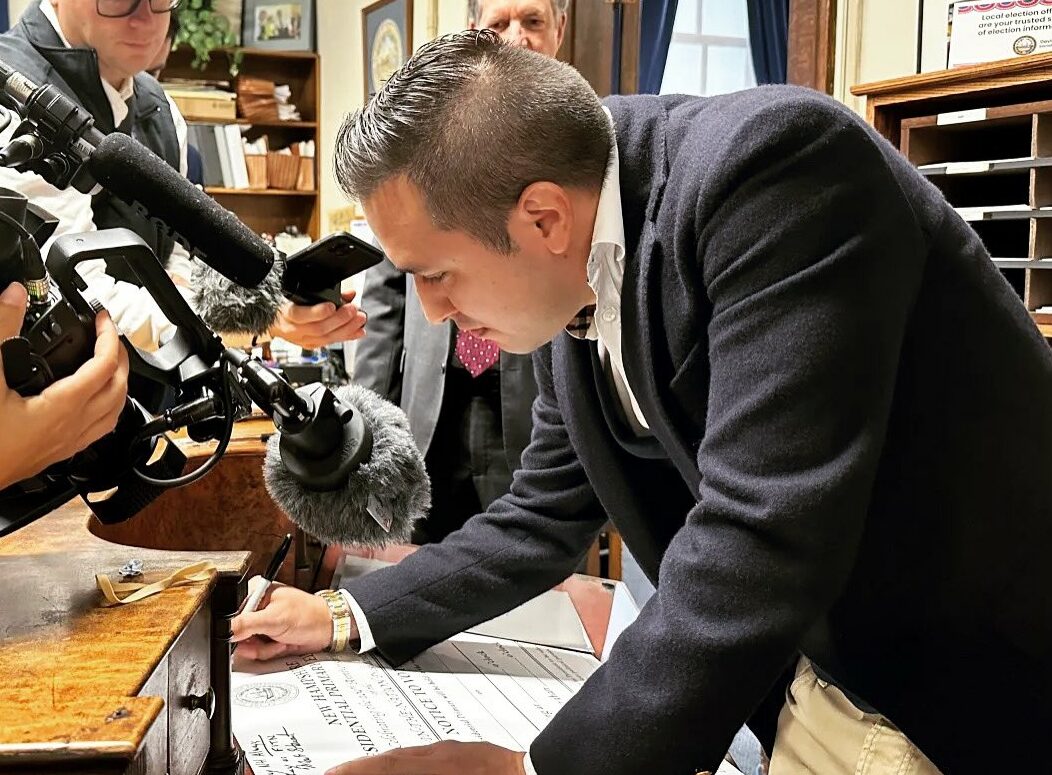No Bail for Armed, Skateboarding, Manifesto-Writing Anti-Trump Vandal
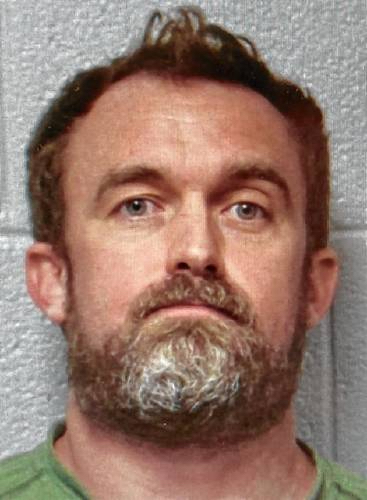
Lawrence Dunlap won’t be skating this time.
The 37-year-old skateboard-riding Concord realtor had guns and a manifesto in his home when he was arrested for keying 11 cars during the state GOP convention on April 14. A judge has ruled he’s staying in jail for now.
Concord District Court Judge Sarah Christie denied bail for Dunlap on Monday, saying the alarming items police found, as well as evidence about his mental health, are cause for concern about the risk he poses to the community.
Last week, police released a photo of a skateboard-riding figure they believed was responsible for damaging the cars parked outside Concord High School. Once they determined it was Dunlap, they executed a search warrant at his South Spring Street home on Friday, where they found several guns, including an AR-15 rifle. They also found a bag containing latex gloves, flex cuffs, dark clothes, face masks, a billy club, and a medieval-style mace. Raising more red flag was the document described as a suicide note-manifesto Dunlap wrote.
In it, he echoed some of the anti-Donald-Trump sentiment that appeared on his social media accounts.
“I can’t continue to exist for everyone else,” Dunlap wrote. “I truly despise humanity and all the filth we have accepted as acceptable. This world and economy requires personalities like Scott Herzog and Donald Trump. I’m sorry for the pain I know I will cause with this decision. Have me cremated and throw the ashes in the trash.”
In October 2022, the Massachusetts U.S. Attorney’s office announced that Scott Herzog of Norwell, Mass., had been sentenced to a year and a half in prison “for failing to report approximately $1.5 million in income to the Internal Revenue Service.” Herzog owned a landscaping business in the South Shore area.
The full manifesto was not available on Monday.
After Dunlap’s arrest on Friday, NHJournal discovered several anti-Trump messages he had posted, apparently in response to events in Washington, D.C. on Jan. 6, 2021.
“Y’all (Trump supporters) lost your s–t when [Obama] tried to fix healthcare. Never mind the sheer f—ery Trump has pulled for the last for [sic] years,” Dunlap posted.
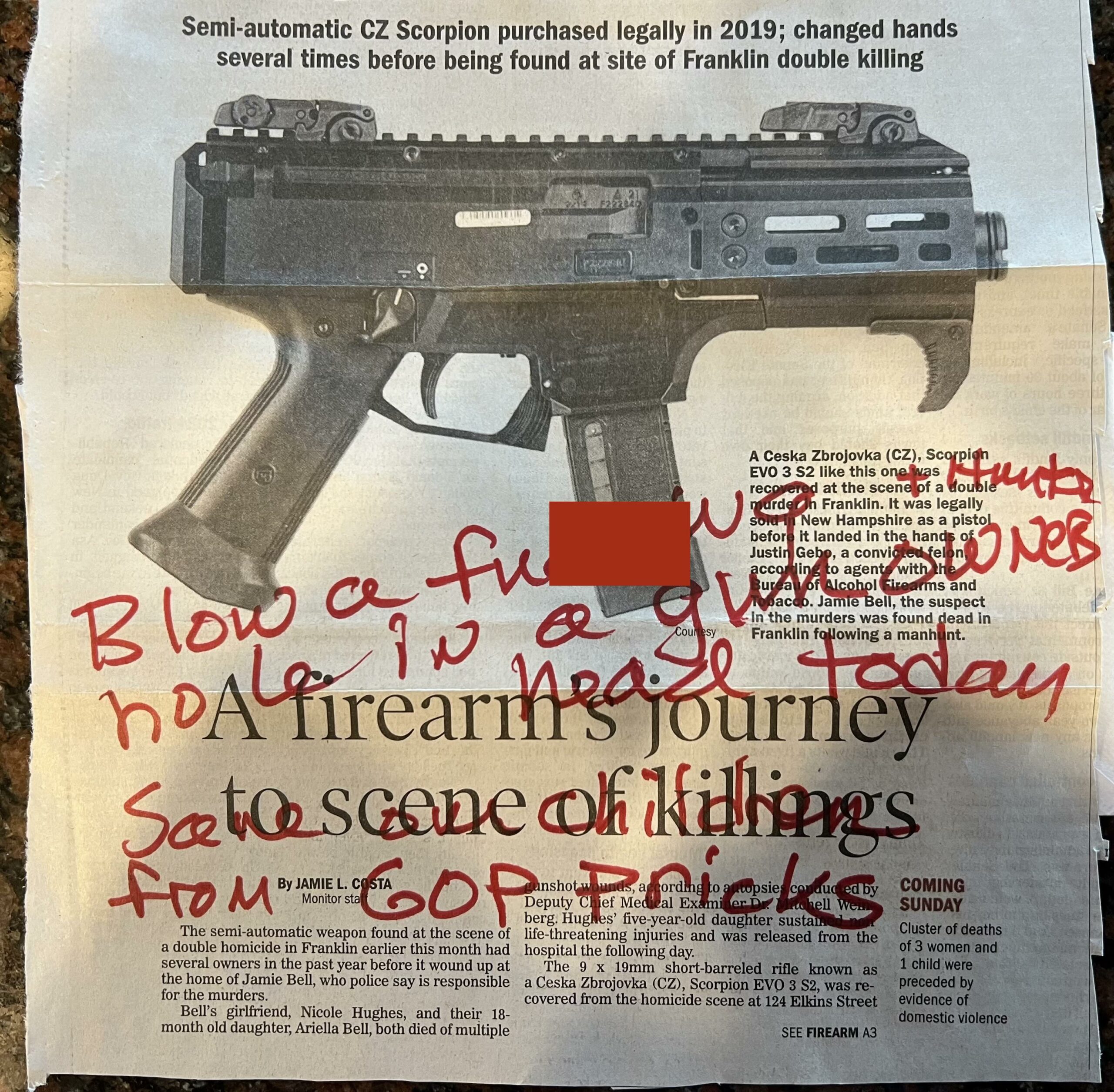 In addition to the vandalism of their cars, several of the Republican volunteers also reported having previously received threatening phone calls and letters.
In addition to the vandalism of their cars, several of the Republican volunteers also reported having previously received threatening phone calls and letters.
In the case of state Rep. Lorie Ball (R-Salem.), one letter included an image of a gun and a handwritten message urging that someone “blow a f***ing hole in a gun owner’s head today. Save our children from GOP pr*cks.” She reported the message to the police at the time.
Asked about the increase in angry rhetoric and violence targeting Republicans, House Majority Leader Jason Osborne (R-Auburn) called it “the predictable and inevitable result of inundating children from an early age with messages of hate for their own country, family, culture, and for themselves.”
Concord Police Detective Evan Cristy writes in his report that Dunlap was identified as the suspect in the vandalism case after a woman walking her dog saw him on the day of the incident.
The woman told police she saw Dunlap get out of a white van and begin photographing the parked cars, Cristy wrote. Police obtained surveillance video of the area and were able to get the van’s license plate number. It came back as being owned by Dunlap.
Cristy went to Dunlap’s home Friday to execute a search warrant. Dunlap was home, but told the detective he would not make any statement and was contacting an attorney. During the search, Dunlap left his home on foot and police issued an alert to “be on the lookout,” as he was considered a danger. He was taken into custody a few hours later.
Cristy writes that Dunlap recently lost his job as a relator and has been suffering depression and suicidal thoughts in the past year, according to comments made by Dunlap’s wife.
Dunlap is charged with 11 felony counts of criminal mischief, as each car he allegedly damaged is estimated to need $1,000 in repairs. Each count carries a three-and-a-half to seven-year prison sentence if convicted. Given that he is charged with felonies, Dunlap’s case will be brought to a grand jury for possible indictments. Grand jury proceedings are secret, though there is typically at least one session a month in superior courts.
Dunlap is currently being held in the Merrimack County Jail’s medical unit due to mental health concerns.

